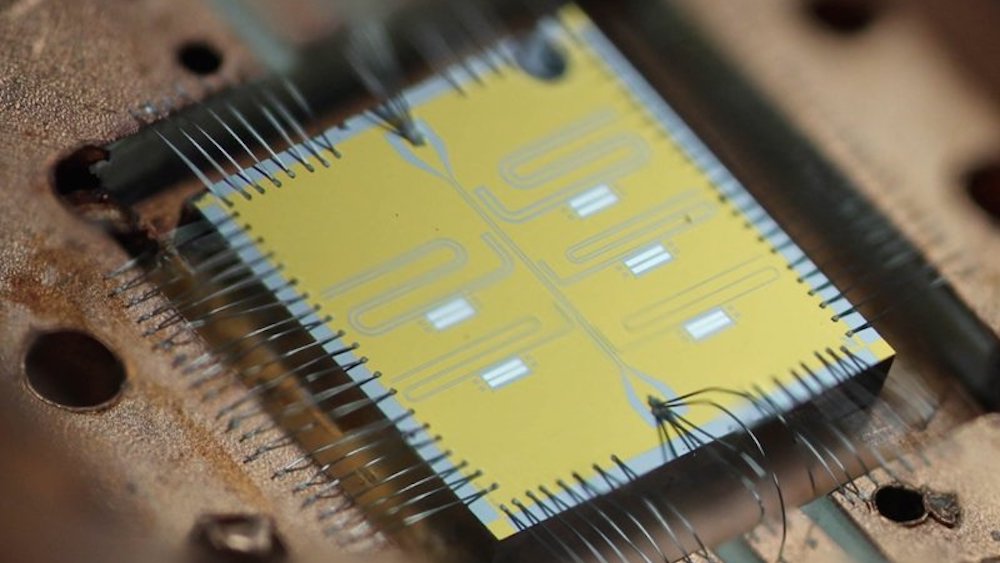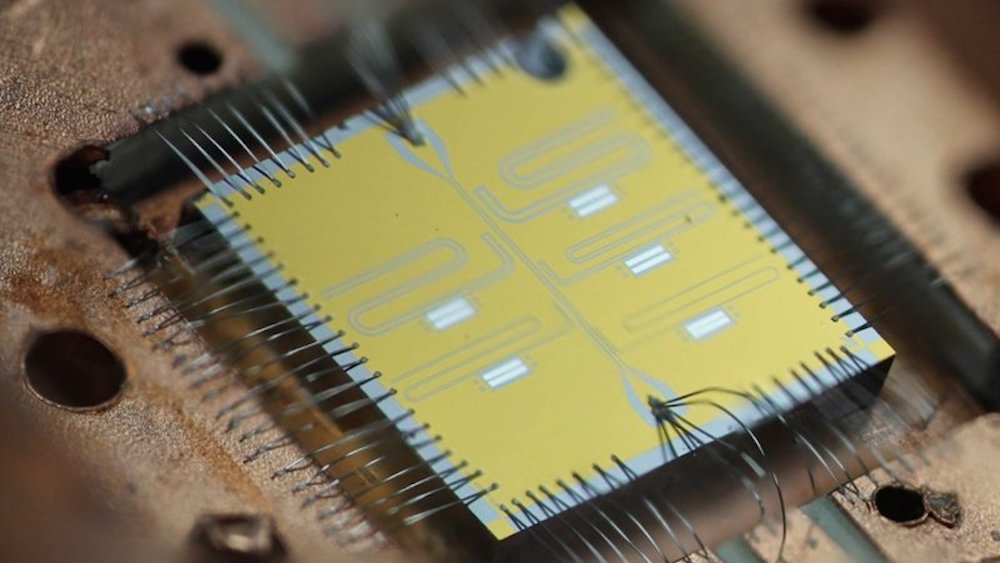
Credit: University of California, Berkeley
The world of quantum is the world of the very, very small. At sizes near those of atoms and smaller, the rules of physics start morphing into something unrecognizable—at least to us in the regular world. While quantum physics seems bizarre, it offers huge opportunities.
Quantum physics may hold the key to vast technological improvements in computing, sensing, and communication. Quantum computing may be able to solve problems in minutes that would take lifetimes on today’s computers. Quantum sensors could act as extremely high-powered antennas for the military. Quantum communication systems could be nearly unhackable. But we don’t have the knowledge or capacity to take advantage of these benefits—yet.
The Department of Energy (DOE) recently announced that it will establish Quantum Information Science Centers to help lay the foundation for these technologies. As Congress put forth in the National Quantum Initiative Act, the DOE’s Office of Science will make awards for at least two and up to five centers.
These centers will draw on both quantum physics and information theory to give us a soup-to-nuts understanding of quantum systems. Teams of researchers from universities, DOE national laboratories, and private companies will run them. Their expertise in quantum theory, technology development, and engineering will help each center undertake major, cross-cutting challenges. The centers’ work will range from discovery research up to developing prototypes. They’ll also address a number of different technical areas. Each center must tackle at least two of these subjects: quantum communication, quantum computing and emulation, quantum devices and sensors, materials and chemistry for quantum systems, and quantum foundries for synthesis, fabrication, and integration.
The impacts won’t stop at the centers themselves. Each center will have a plan in place to transfer technologies to industry or other research partners. They’ll also work to leverage DOE’s existing facilities and collaborate with non-DOE projects.
As the nation’s largest supporter of basic research in the physical sciences, the Office of Science is thrilled to head this initiative. Although quantum physics depends on the behavior of very small things, the Quantum Information Science Centers will be a very big deal.
Quantum physics may hold the key to vast technological improvements in computing, sensing, and communication. Quantum computing may be able to solve problems in minutes that would take lifetimes on today’s computers. Quantum sensors could act as extremely high-powered antennas for the military. Quantum communication systems could be nearly unhackable. But we don’t have the knowledge or capacity to take advantage of these benefits—yet.
The Department of Energy (DOE) recently announced that it will establish Quantum Information Science Centers to help lay the foundation for these technologies. As Congress put forth in the National Quantum Initiative Act, the DOE’s Office of Science will make awards for at least two and up to five centers.
These centers will draw on both quantum physics and information theory to give us a soup-to-nuts understanding of quantum systems. Teams of researchers from universities, DOE national laboratories, and private companies will run them. Their expertise in quantum theory, technology development, and engineering will help each center undertake major, cross-cutting challenges. The centers’ work will range from discovery research up to developing prototypes. They’ll also address a number of different technical areas. Each center must tackle at least two of these subjects: quantum communication, quantum computing and emulation, quantum devices and sensors, materials and chemistry for quantum systems, and quantum foundries for synthesis, fabrication, and integration.
The impacts won’t stop at the centers themselves. Each center will have a plan in place to transfer technologies to industry or other research partners. They’ll also work to leverage DOE’s existing facilities and collaborate with non-DOE projects.
As the nation’s largest supporter of basic research in the physical sciences, the Office of Science is thrilled to head this initiative. Although quantum physics depends on the behavior of very small things, the Quantum Information Science Centers will be a very big deal.




 IonQ Achieves Industry Leading Performance on Next Generation Barium Qubits
IonQ Achieves Industry Leading Performance on Next Generation Barium Qubits